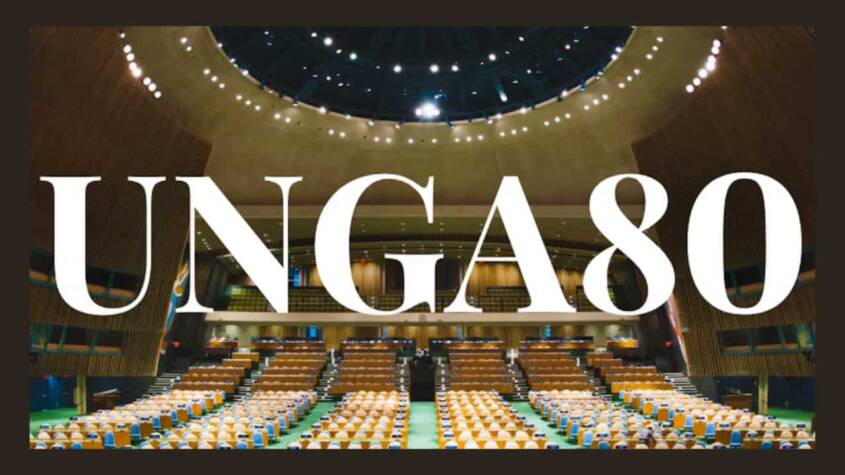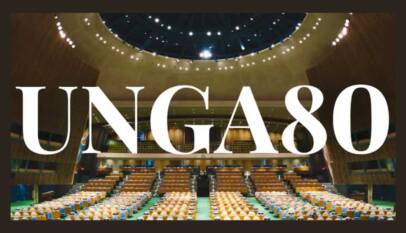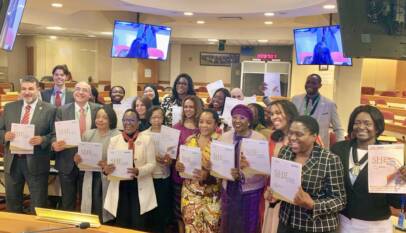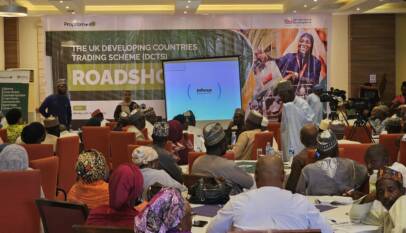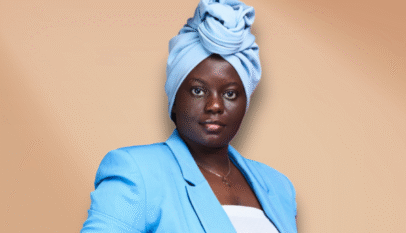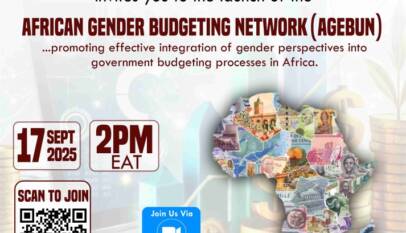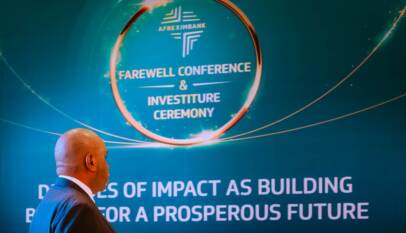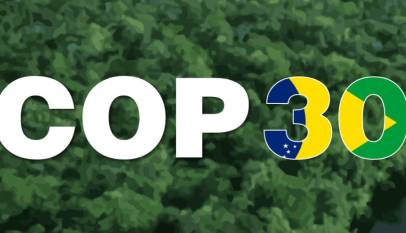OP-ED | The UN’s Next 80 Years Depend on Africa’s Next 10, By Ahunna Eziakonwa
Africa’s youth, resources, and innovation are pivotal for the world’s future, and at the 80th United Nations General Assembly (UNGA80), leaders emphasized that multilateral solutions—from climate action to economic growth—cannot succeed without Africa at the table.
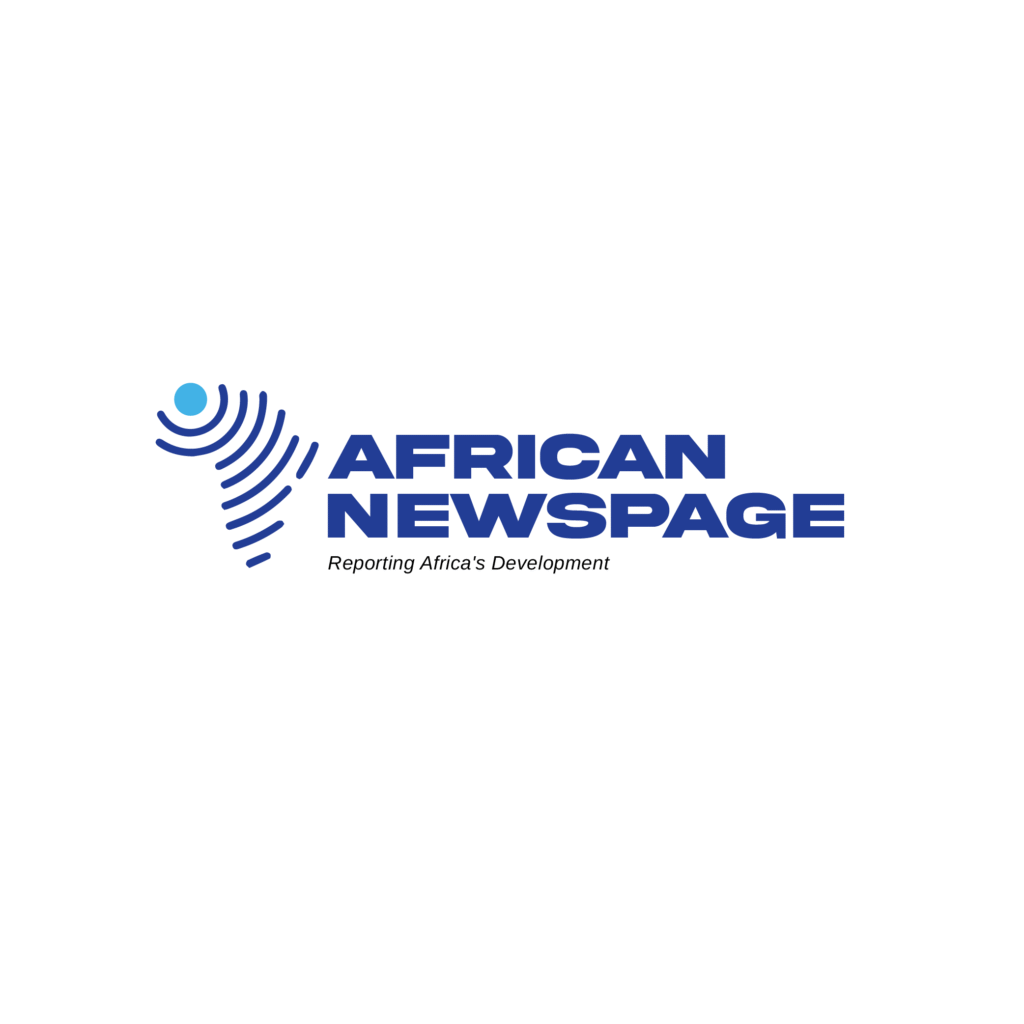
The United Nations turns 80 this year. It should be a celebration. Instead, it feels like a reckoning. Multilateralism, as we know it, is in crisis: too slow where it should be agile, too fragmented where it should be cohesive, too exclusive where it should be universal. Conflict is escalating, climate change is accelerating, inequality is widening, and the politics of division are spreading. The world is turning inward at precisely the moment when cooperation is the only path forward.
Nowhere is this urgency clearer than in Africa. This was evident throughout the deliberations at UNGA80, where leaders, activists, and innovators repeatedly underscored that any conversation about the world’s future that excludes Africa misses the point entirely. By 2050, one in four people on earth will be African. The median age on the continent is just 19, compared to 42 in Europe.
That demographic dynamism, combined with Africa’s 60% of the world’s uncultivated arable land, 30% of critical mineral reserves, and an expanding digital ecosystem projected to add $180 billion to GDP by 2025, makes Africa the world’s most consequential growth frontier. Africa is not just part of the future; it is the hinge on which the future turns.
At UNGA80, I joined African heads of state and global leaders to elevate this message: Africa must not be locked out of fair finance, burdened by debt, or sidelined in global decision-making.
The imbalance is not only unjust; it is economically irrational. Today, the continent accounts for just 3% of global FDI inflows, pays on average five times more to borrow than advanced economies, and spends 12% of government revenue on debt service—double the global average. Without Africa’s full participation, climate action, food security, and sustainable growth are simply out of reach.
Paradoxically, while millions of young Africans are brimming with ideas but starved of capital, just four of the continent’s richest men hold more wealth than half of Africa’s population—nearly 750 million people. This stark inequality underscores why Africa cannot remain merely a source of raw materials in a new global “scramble” for critical minerals, fertile land, and renewable energy potential. The world may need Africa’s cobalt, lithium, and abundant sunlight; but African countries need more than to be suppliers of raw materials.
At UNGA, under the leadership of Nigeria, heads of African governments and partners convened to define a common voice and align policies on resources. The priority is to process minerals within Africa, innovate across value chains, and turn reserves into shared prosperity at home.
Development must be people-centered, innovation-driven, and scaled through partnerships connecting governments, the private sector, and civil society. It must dismantle systemic barriers rather than patch symptoms. For six decades, the United Nations Development Programme (UNDP) has been a trusted partner through Africa’s transformations: working in the hardest places, helping build institutions, unlocking sustainable finance, expanding energy access, and empowering women and youth. If there is one lesson from this journey, it is that today’s crises cannot be solved with yesterday’s tools.
Take timbuktoo, the UNDP-led initiative creating the largest pan-African investment in startups, showcased at Unstoppable Africa, the landmark event that kicks off the high-level week of UNGA. Across fintech, agritech, healthtech, and climate solutions, African innovators are proving that the continent is not a site of perpetual need but of scalable solutions. Timbuktoo is betting on Africa’s entrepreneurs to power the next wave of global growth.
Or consider energy. From Nigeria to Rwanda to Mozambique, UNDP is helping communities leapfrog to renewable power, creating green jobs, unlocking productivity, and driving industrialization. Africa’s energy transition is not just about lights and power; it is about building the backbone for the next industrial revolution.
Africa’s forests remind us that climate action is not theoretical but a living global asset safeguarded by local communities. Celebrating a decade of the Central African Forest Initiative on the margins of UNGA80 underscored how these ecosystems matter not only for carbon capture but also for livelihoods. Equally, women at the frontline of climate change—whether farmers adapting to erratic rains or leaders shaping policy—showed that resilience must be women-led to be truly transformative. Climate solutions that leave half the population behind are no solutions at all.
Governance is also critical. In fragile contexts, UNDP has helped safeguard the democratic process, strengthen electoral commissions, digitize voter registration, and ensure that millions—especially women and young people—can make their voices heard. Africa is showing the way. Where the world fragments, Africa pushes for integration.
Democracy and stability are not a luxury set apart from development; they are its very foundation. This principle animated the African Facility to Support Inclusive Transitions Executive Board and resonated at the high-level dialogue on the Sahel’s future, where Sahelians themselves affirmed a truth too often overlooked: resilience in the Sahel will endure only if public trust is restored.
The African Continental Free Trade Area (AfCFTA)—the most ambitious integration project since the European Union—is unlocking regional value chains, intra-African trade (currently just 15%, compared to 60% in Europe), and the world’s largest single market by population. Last week, we launched the Africa Strategic Investment Alliance (ASIA), emphasizing how financial sovereignty, investment, and blended finance must be harnessed to unlock Africa’s development on its own terms.
Energy corridors, digital infrastructure, and industrial strategies are being coordinated across borders, positioning the continent as a hub of production, services, and innovation. This is not just about economics; it is about geopolitics. A stronger, more integrated Africa is a stronger voice on the global stage.
Today, our work is more urgent than ever. Turning inward now would be a betrayal of our shared humanity. At a time when health crises, artificial intelligence, climate shocks, and migration pressures demand collective readiness, retreat only guarantees deeper crises. The choice before us is stark: more solidarity, more investment, more cooperation—or more division, more instability, more missed futures.
At UNGA80, Africa’s message was clear: multilateralism is not a relic to be managed, but a lifeline to be renewed. Africa’s participation is not optional; it is indispensable. And UNDP’s role is not peripheral; it is pivotal because it bridges global vision and local reality: connecting governments, private sector, and communities; driving innovation from clean energy to digital transformation; and mobilizing finance while strengthening institutions.
Future generations will not judge us by the speeches we gave, but by whether we had the courage to adapt, invest, and act. Our true legacy will be measured in whether we helped build a world prepared for the future, or one broken by our failures.
About the Author:
Ahunna Eziakonwa is a senior United Nations official and development leader, serving as Assistant Administrator and Director of the Regional Bureau for Africa at UNDP. The views expressed in this op-ed are those of the author and do not necessarily reflect African Newspage’s editorial policy.

